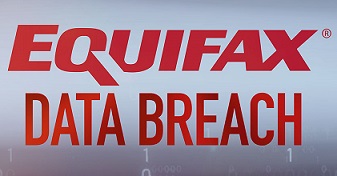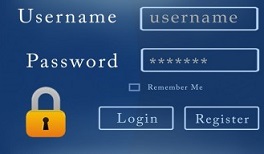 In today’s digital age, it is impossible to avoid the internet. Even if you don’t have a computer and actively avoid social media, there is information about you in some corner of the web. Here are some ideas to help you manage your digital footprint:
In today’s digital age, it is impossible to avoid the internet. Even if you don’t have a computer and actively avoid social media, there is information about you in some corner of the web. Here are some ideas to help you manage your digital footprint:
- Actively manage your security settings. Every app, social media site and web browser have multiple layers of privacy and security settings. When you download a new app or register with a new site, don’t simply trust the default settings. Look through the options yourself to ensure you are comfortable with the level of privacy. One thing to watch for with apps on your phone is location settings. Some apps will track your location even when the app isn’t running.
- Protect your online image. Career search firms now have strategies built entirely around recruiting through social media. In addition to recruiting, human resource departments will vet prospective employees by reviewing social media profiles. Pay attention to what others post about you, as well. If you are uncomfortable with what they are sharing, have a conversation with them and ask that it be taken down.
- Set boundaries for yourself. According to the Pew Research Center, 74 percent of Facebook users visit the site on a daily basis. And 51 percent say they visit multiple times per day. Try to find the balance that allows you to enjoy connecting with others online, but doesn’t negatively impact other parts of your life. In addition to time spent, draw a bright line between what you consider shareable versus personal information. If you have these boundaries in mind when on social media, it will help you think critically before continuing to scroll or posting something.
- Know your friends. Be aware of who you are connected to on social media sites. Be cautious of accepting connection requests from people you don’t know, as some of these requests could be a phishing attempt to swipe confidential information.
The best defense of your private information is you. Having a plan and actively managing your online profiles is the best way to minimize the chance of your personal data falling into the wrong hands.
 Do you know what your kids are doing online? That question may seem like it has a simple yes or no answer, but that’s hardly the case. With so many streaming platforms, social media outlets and new gaming options popping up every day, it’s nearly impossible to fully protect your kids from what they can encounter online.
Do you know what your kids are doing online? That question may seem like it has a simple yes or no answer, but that’s hardly the case. With so many streaming platforms, social media outlets and new gaming options popping up every day, it’s nearly impossible to fully protect your kids from what they can encounter online.
The Federal Trade Commission has several suggestions for protecting your kids online. Here are some of its recommendations.
- Overcommunicate. How successful you will be with your child’s online safety hinges on communication. Ask them about the newest apps and online trends. Be open about the dangers of the internet and teach them to be skeptical about every website and app. Encourage them to bring concerning items they find to you to have a discussion. The goal is to make your child as concerned about their online well-being as you are.
- Limit where and how they use their devices. Most phones, tablets and computers have parental control options that allow you to set age, time and content restrictions. Spend some time to understand what’s available to parents and how it works. It can be hard to know where to draw boundaries for your children, but don’t let that discourage you. A good practice is to start by over-restricting and then becoming more lenient over time. In addition to what your kids can access, set rules about where they can use their devices.
- Stress the safe-guarding of personal information. Most kids know not to openly share addresses, phone numbers or personal information online, but there are a few places where it happens inadvertently. One of those is in your profile you set up for a website or app. In some cases, your profile is made public to other users. Another place it can happen is in-app chatting. Most apps and games have a forum that allow users to interact with one another. Frequently ask your kids about who they are interacting with online and follow up on any suspicious online relationships. Never allow photos of your home or address to be shared or posted.
- Observe attitude and behavior. Monitor your child’s activity and let them know you are doing so. If your child is struggling with something they came across online, or have found themselves in a dangerous situation, they may show signs through their behavior. If you notice them withdrawing emotionally, looking to access devices in private, or showing signs of anxiety or depression, your kids may need your help.
Discussing the dangers of the online world with your child can be uncomfortable and awkward, but in today’s interconnected world, it’s imperative in order to keep them mentally healthy and physically safe.

Be Proactive!
Earlier this year, hackers were able to breach the security of Equifax, one of the three national credit reporting agencies. More than 143 million Americans — nearly half the country — were exposed to the attack, and may have had their personal information stolen, including names, birthdates, and Social Security and driver’s license numbers.
Equifax is still determining exactly whose data has been exposed. While you wait to find out, it’s worth taking a few proactive steps to make sure your info isn’t misused by hackers.
Start checking. Visit Equifax’s website at www.equifaxsecurity2017.com and enter your last name and last six digits of your Social Security number. The site will tell you whether it’s likely or not your data has been exposed, and put you on a list to get more information. You can also sign up for a year’s worth of free credit monitoring.
Watch your statements. Start checking your credit card statements, and pay special attention to cards you don’t use often. The initial reports from the breach were that hackers may have been making charges on underused cards.
Check your credit reports. You can look for suspicious items on your reports, such as new accounts being opened in your name, at all three credit report agencies: Equifax, Experian and TransUnion. Free annual reports are available at www.annualcreditreport.com.
Freeze your credit. If you suspect you may become a victim of identity theft, you can place a credit freeze on your profile at each of the three credit reporting agencies. This stops new accounts from being opened in your name. Note that you’ll have to unfreeze your accounts if you want to apply for new loans or make your credit accessible for things such as job applications.
File your taxes early. One of the most common ways identity thieves use your information is to try to claim a tax refund with your data. This was the most common scam in 2016, according to the Better Business Bureau. If you file your tax return as early as possible, you shut down this opportunity for any would-be thieves.
 You’re doing your passwords all wrong.
You’re doing your passwords all wrong.
So says the developer of the guidelines most internet users have been following for 15 years, anyway. Passwords that L00K l!ke tHi$ are actually much more susceptible to hacking than most people realize, says Bill Burr, former manager of the National Institute of Standards and Technology (NIST) and author of the NIST’s 2003 recommendations for password management.
In an interview with The Wall Street Journal, Burr said that his previous advice to use numbers, symbols and randomized capitalization resulted in people creating passwords that are easy for computers to predict.
A more secure option is to use four random words, such as “that purple monkey dishwasher.” Such a phrase is actually much more complicated for computers to guess, The Wall Street Journal reports. (Cartoonist Randall Munroe explained the math in a comic six years ago.)
Some password advice remains relevant, however: avoid using birthdays or anniversaries, your kids’ names or your address, as all of this information is easy for hackers to locate. Additionally, use different passwords for each of your accounts and avoid storing them where they can be easily seen or stolen.
With cybersecurity threats on the rise, CPAs are paying attention to such advice. (An article about Burr’s interview that appeared in last Thursday’s CPA Letter Daily was one of the week’s most clicked stories, natch.) Strong passwords are just the tip of the iceberg, though. CPA firms and their clients are looking at ways not only to protect sensitive information, but also to report on those efforts.
In response to this need, the AICPA has updated its Cybersecurity Resource Center to provide information on protecting firms, advising clients and reporting on an organization’s cybersecurity efforts – all using the recently released AICPA cybersecurity risk management reporting framework.
Lindsay N. Patterson, CAE, Senior Manager – Communications and Public Relations, Association of International Certified Professional Accountants
One of the most common reasons businesses fail is due to lack of understanding of cash flow. The same can be said about your household’s personal financial statement. So what is this cash flow concept, how does it apply to you, and what are some ways to improve yours? In Part 1 of this two-part article, we explained explain what cash flow is and how to determine your cash flow. In Part 2, we’ll give you some ways to improve your cash flow.
Identify your challenges. See if you have months where more cash is going out than is coming into your bank account. This is often when large bills are due. Try to balance these known high-expense months out over the year if at all possible. Common causes are:
- The holidays
- Property tax payments
- Car and homeowners insurance
- Annual income tax payments
- Vacations
Build a reserve. If you know there are challenging months, project how much additional cash you will need and begin to save for this reserve in positive cash months.
Cut back on annuities. See what monthly expense drivers are in your life. Can any of them be reduced? Can you live with fewer cell phone add-ons? How about cutting costs in your cable bill? Is it time for an insurance review?
Shop your current services. Some of your larger bills may create an opportunity for savings. This is especially true with homeowners and car insurance.
Don’t confuse savings with cash flow. Think of your savings as the accumulation of positive cash flows from prior months. A high savings balance can often mask a monthly cash flow problem where more is going out than is coming in over a period of time.
Create savings “expense” to add to cash flow. Consider adding a “bill to yourself” in your cash outflows. This money saved is a simple technique to create positive cash flow each month to build an emergency reserve.
As summer vacation season begins, please take a moment to review Traveler Safety Tips provided for those who stay in hotels and public lodging. These tips are provided courtesy of the American Hotel and Lodging Association. Be safe out there!
- Don’t answer the door in a hotel or motel room without verifying who it is. If a person claims to be an employee, call the front desk and ask if someone from their staff is supposed to have access to your room and for what purpose.
- Keep your room key with you at all times and don’t needlessly display it in public. Should you misplace it, please notify the front desk immediately.
- Close the door securely whenever you are in your room and use all of the locking devices provided.
- Check to see that any sliding glass doors or windows and any connecting room doors are locked.
- Don’t invite strangers to your room.
- Be aware of potential phone scams and prank calls to your guestroom. Hotel employees will never request credit card or personal information over the phone, nor will they advise a guest to damage hotel property.
- Place all valuables in the hotel or motel’s safe deposit box.
- When returning to your hotel or motel late in the evenings, be aware of your surroundings, stay in well-lighted areas, and use the main entrance.
- Take a few moments and locate the nearest exit that may be used in the event of an emergency.
- If you see any suspicious activity, notify the hotel operator or a staff member.
Source: American Hotel & Lodging Association
Is your company vulnerable to cyber-crime? Most computer and/or network security breaches are the result of a lack of understanding of the importance of security processes within a company. It’s important to recognize how implementing effective security procedures can protect your clients’ privacy, guard against misuse of confidential information and benefit your business. Here are some suggestions:
- Establish and maintain best practices for computer security.
- Make sure that each system user has a unique login.
- Grant system permissions to users as needed.
- Protect all networks and hardware against viruses.
- Monitor system activity.
- Run regular backups.
- Educate employees on passwords – creating strong passwords and not sharing their passwords.
- Prohibit employees from opening email attachments (particularly ZIP files) from unknown or suspicious sources.
- Disable access to the network and all cloud solutions for former employees.
Setting up and following these simple suggestions can help keep your company and its reputation safe and secure!
All companies today need to be on the alert for being hacked. Most people log onto the internet every day without much thought about how susceptible they are to being hacked. Here are three steps to protect your company against cyber criminals who are working hard to figure their way around your security measures:
Employers need to train their employees – Those employees sitting at their computers each day are a company’s first line of defense. An errant click on the wrong email is like unlocking the front door, so employees should be made aware of the dangers and told what do about suspicious email.
Companies should routinely update their defenses – Outdated technology and outdated security software make a company’s computers vulnerable to attack. It’s important that businesses periodically review their IT operations to make sure what worked last year still provides the needed security.
Consumers must take their own safety measures – It would be nice to expect banks and retailers to protect consumer information, but the average person can’t count on that. Security experts suggest consumers take personal security measures such as frequently changing passwords and deleting any phone apps they don’t use. Many apps contain malware that can spy on you.